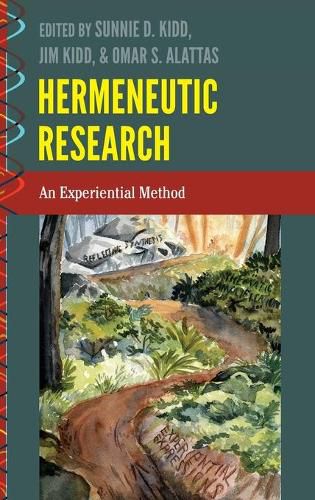Readings Newsletter
Become a Readings Member to make your shopping experience even easier.
Sign in or sign up for free!
You’re not far away from qualifying for FREE standard shipping within Australia
You’ve qualified for FREE standard shipping within Australia
The cart is loading…






This title is printed to order. This book may have been self-published. If so, we cannot guarantee the quality of the content. In the main most books will have gone through the editing process however some may not. We therefore suggest that you be aware of this before ordering this book. If in doubt check either the author or publisher’s details as we are unable to accept any returns unless they are faulty. Please contact us if you have any questions.
Hermeneutic Research: An Experiential Method presents a method to investigate lived experiences. In doing so, this book integrates a broad range of philosophical topics, such as hermeneutics, the philosophy of consciousness, and the philosophy of being. We are conscious beings. Through every act of consciousness, something is presented to the experiencing person. Something-a theme-stands in the focus of attention. Within the dimensional human consciousness, this theme is related to other thoughts, a process that includes certain aspects of the theme and excludes others from conscious experience.
The foundational conviction of the experiential method detailed in this book is that thought is not static in its ultimate nature but organically dynamic. Thought uncovers its internal endlessness through time as its medium, just as the small seed uncovers the unity of a tree through soil as its medium. Thought, as a dynamic self-revealing phenomenon, uncovers itself as a series of understandings that cannot be interpreted except through reciprocal reference. Meaningfulness, therefore, is not contained in self-identity but in the larger whole in which it is a specific part. Wholeness contains possibilities of knowledge as present realities revealing themselves, through human choices and experiences, in temporal progression to reach a unity that is already contained in them. This infinite movement of knowledge thus reveals the possibility intrinsic to finite thought. Intuition, as wholistic apprehension, is movement that could acknowledge and reach an immanent infinite, of which the finite concepts of comprehension and cognition are only momentums.
$9.00 standard shipping within Australia
FREE standard shipping within Australia for orders over $100.00
Express & International shipping calculated at checkout
This title is printed to order. This book may have been self-published. If so, we cannot guarantee the quality of the content. In the main most books will have gone through the editing process however some may not. We therefore suggest that you be aware of this before ordering this book. If in doubt check either the author or publisher’s details as we are unable to accept any returns unless they are faulty. Please contact us if you have any questions.
Hermeneutic Research: An Experiential Method presents a method to investigate lived experiences. In doing so, this book integrates a broad range of philosophical topics, such as hermeneutics, the philosophy of consciousness, and the philosophy of being. We are conscious beings. Through every act of consciousness, something is presented to the experiencing person. Something-a theme-stands in the focus of attention. Within the dimensional human consciousness, this theme is related to other thoughts, a process that includes certain aspects of the theme and excludes others from conscious experience.
The foundational conviction of the experiential method detailed in this book is that thought is not static in its ultimate nature but organically dynamic. Thought uncovers its internal endlessness through time as its medium, just as the small seed uncovers the unity of a tree through soil as its medium. Thought, as a dynamic self-revealing phenomenon, uncovers itself as a series of understandings that cannot be interpreted except through reciprocal reference. Meaningfulness, therefore, is not contained in self-identity but in the larger whole in which it is a specific part. Wholeness contains possibilities of knowledge as present realities revealing themselves, through human choices and experiences, in temporal progression to reach a unity that is already contained in them. This infinite movement of knowledge thus reveals the possibility intrinsic to finite thought. Intuition, as wholistic apprehension, is movement that could acknowledge and reach an immanent infinite, of which the finite concepts of comprehension and cognition are only momentums.